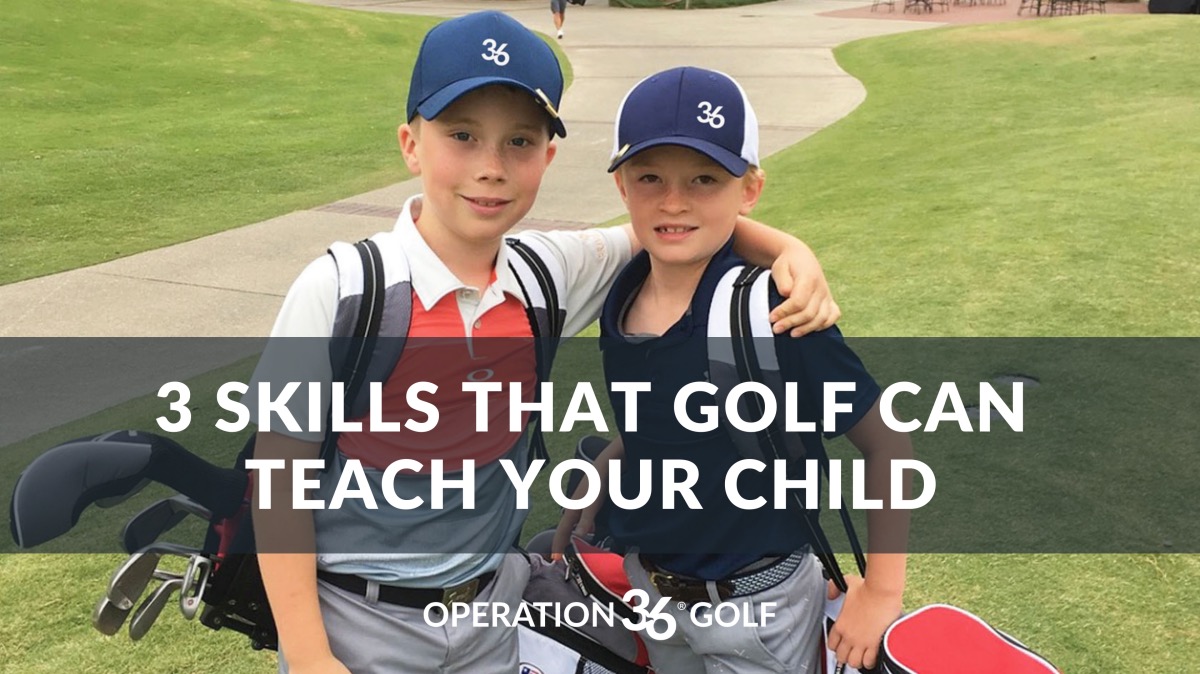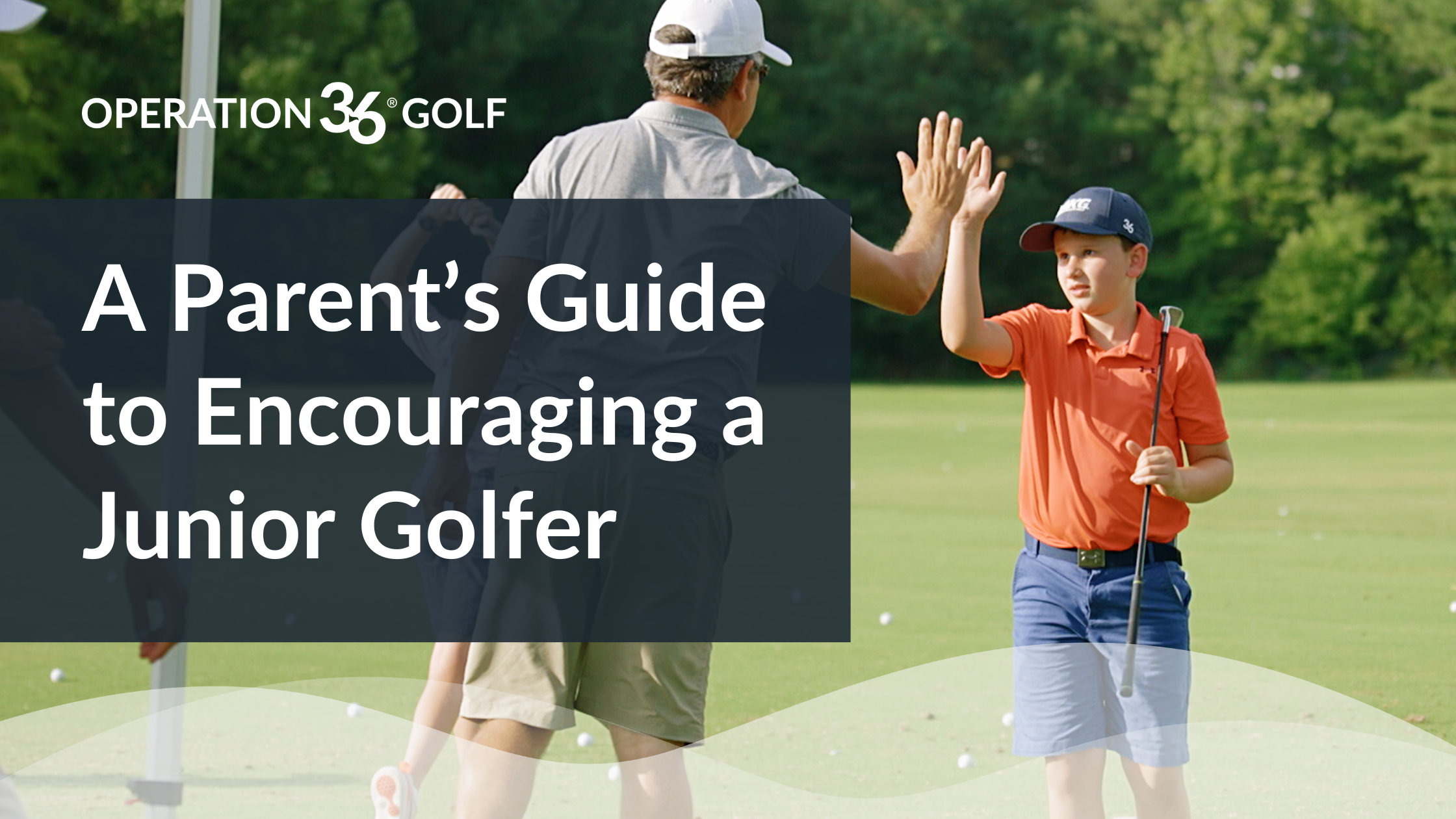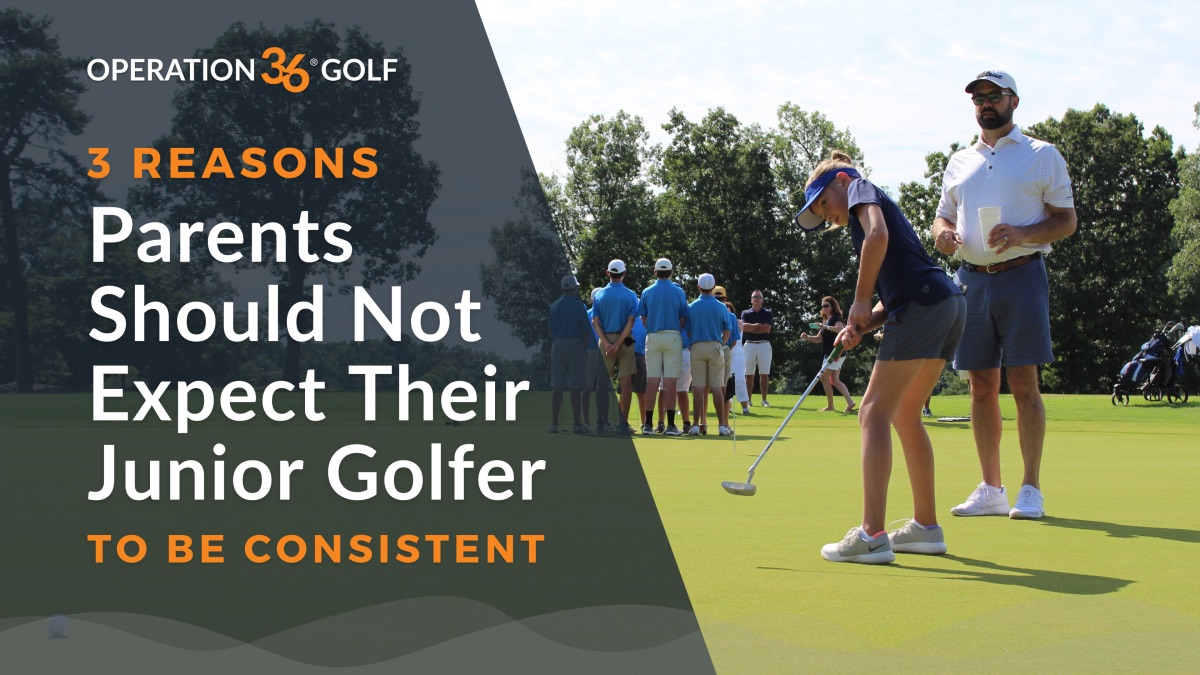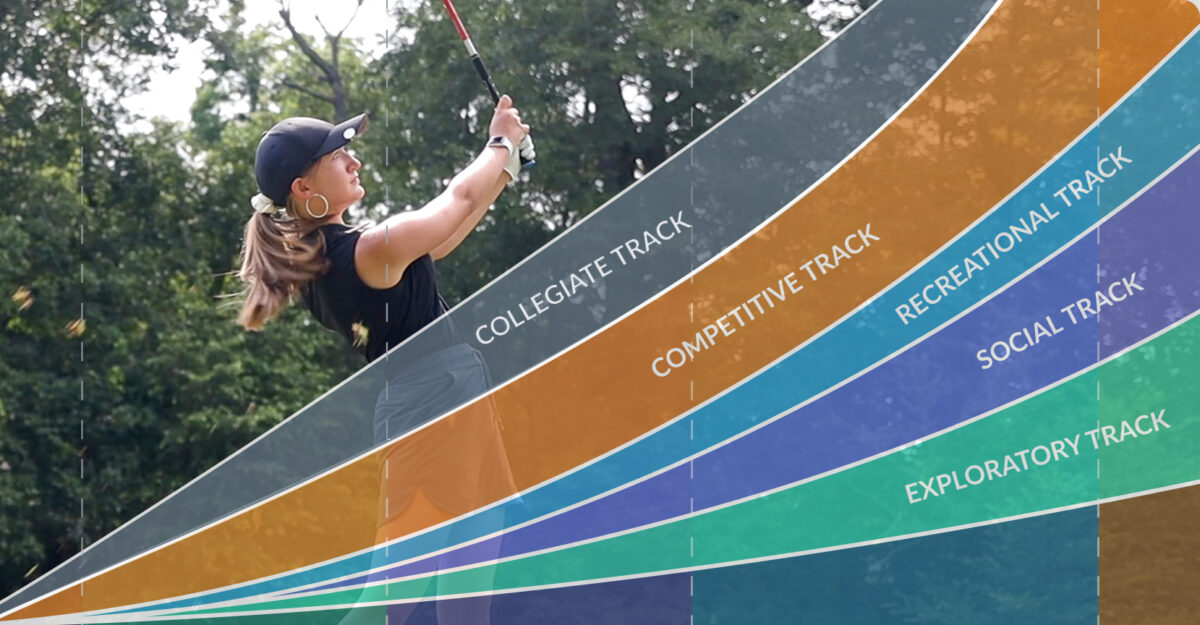
We want your child to participate in sports. We love sports. We know sports can teach skills that will help participants be more successful personally, professionally, and in our community. Over the past 10 years, we have taught many juniors and would love to share the lessons that we have seen them learn through golf over the years.
As parents, we want our children to grow up and positively contribute to society. Some of us want our children to pursue their passion, raise a family, and help others. Others may want them to follow in our footsteps and run the family business. Whatever it is that we want them to achieve, they will have to develop a solid base of ‘social skills.’
Social skills are both verbal and non-verbal skills we use everyday to communicate with others. The problem is that none of us are born with these skills, and they need to be developed. As our society continues to move more and more to a digital experience where face to face interactions are minimized on a daily basis, the opportunity to develop world-class ‘social skills’ have been drastically reduced.
A solution can be introducing your child to the sport of golf. Communication with others both verbal and non-verbal occurs well over 100 times in a round of golf. A child will get a chance to build their ‘social skills’ muscle each and every time they play the game of golf with their friends or others. Golf is different from sports such as basketball, football, hockey, and soccer. Yes, those other sports are great and you do learn ‘social skills’ in them. However, in Golf, the number of opportunities a player has to interact with others is dramatically higher than say when you are skating up and down the rink as fast as you can to get the puck.
It takes a player approximately 30 seconds to hit a shot after you factor in your club decision, pre-shot routine, hitting the actual shot, and then your post-shot routine. If you hit 5 shots in a hole, that is a total of 2 minutes and 30 seconds. If a normal hole takes 10-12 minutes, that leaves quite a bit of time for you to interact with the others in your group. Sometimes you are talking with them while other times you are reading their body language to see how you can best help. We see it all the time. A group of 3 players leaves the 1st tee and nobody knows each other. By the time they come back to the 9th green, after being together for 2 hours, they are chatting it up and exchanging phone numbers to figure out when they can practice/play again together or hang out.
In recent years it seems that the easiest solution to a problem is to ask someone else. We see it in our children, employees, students, coaches, and even ourselves if we aren’t careful. In our rush to get on to the next item on our to do list, we have fallen into the poor habit of asking others in hopes that they will have the quick answer.
A common response to that question at our house is, “That’s a good question. Can you problem solve it until you get stuck and then we are happy to help.” We are trying as best as we can to raise “problem solvers.”
In golf, a player is constantly solving problems as long as they are given the chance. Common problems that players are challenged with to solve are:
We need to be careful as parents to not solve all the problems for our players or they will never build that “problem solving” muscle. If they never build that muscle, they will be lost when we are not around, they will not confidently make any decisions and their performance will suffer long term.
More importantly, they will never develop the ability to bounce back from a poor shot that they committed to and took ownership of. If Dad makes every decision, if they hit a poor shot, they can always blame Dad a little bit.
We’ve observed plenty of parents over the years that solved every little problem that came up and the student never took ownership of any decision or developed that decision making muscle.
The minute Dad wasn’t present and they had to make a decision on their own, they were terrified. If they made a poor choice, they didn’t know how to handle it emotionally and they fell apart on the next shot and sometimes the rest of the round. If players go through that cycle enough, they will end up quitting the game and we have certainly seen our share of players that have done that. It’s sad to see, yet it was preventable.
The next time your player is trying to choose a club to hit a shot, don’t jump in and tell them what club to hit and why. Let them take ownership of solving the problem and sit back and let them learn. If they make a poor decision, that is their opportunity to learn from it. We don’t want to take that learning opportunity from them.
The most successful employees, students, and coaches we have had were expert ‘problem solvers.’ When a problem arose, they would rub their hands together like a mad scientist in excitement as they couldn’t wait to solve the problem.
PARENT CADDY TIP - OUR FAVORITE
They weren’t born that way, they learned this skill along the way and your child can too, if you let them.
Personal accountability is the belief that you are fully responsible for your own actions and the consequences from those actions. This could be the most important skill that any human being can develop and cultivate.
Without ‘personal accountability,’ a person never looks within for the solution, they always are looking outward by blaming others, the environment, their childhood, their parents, the government, the weather….the list could go on and on. And if someone develops a poor habit of never looking within for the solution, they will never push themselves to learn and develop new skills to overcome these barriers to success.
Golf is an individual sport and ‘personal accountability’ is built into the fabric of the game. If you make a high score, it is on you. If you hit a poor shot, it is on you. It’s black and white, there is no grey area. When you walk off the 18th green, you sign your scorecard and the score that you sign for is what you did.
For many folks, this is the first sport they have ever participated in where they have to take 100% accountability. In football, the score on the scoreboard is not representative of one person, it is the collective effort of everyone on the team. The same is true in basketball, hockey, soccer, and all team sports.
Thus, a player can, if they choose, not take responsibility for their mistakes and not learn from them. In golf, you really have no choice. You are accountable for your score and then it is up to you to problem solve a solution to play better next time.
On the positive side, golfers who get used to the rinse and repeat the cycle of playing, being held accountable for their score, and then using that as motivation to seek out improvement tend to develop some wonderful habits that will serve them well in their future.
If they receive a poor grade in school, a person who has ‘personal accountability’ will not blame the teacher, the curriculum, or the school district they live in. They will own it and take action to improve it the next time. If they find themselves in poor physical health at some point in their life, a person who has ‘personal accountability’ will look at how they can change their current choices.
By changing their current choices, it will change their behaviors and ultimately lead to a better outcome.
If you would like your child to be taught by an Operation 36 coach, who values such lessons, find a facility near you here.
Ryan Dailey, PGA is the co-founder of Operation 36 Golf along with Matt Reagan, PGA. They have dedicated their careers to building a developmental program and technology to introduce and guide anyone in playing the game of golf. The Op36 development model is currently being used at over 525 locations in 11 different countries around the world. To learn more about Operation 36 golf, go to operation36.golf.


